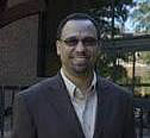Commentary on Luke 19:28-40
Palm Sunday is an opportunity to look to the immediate future and a time of anticipation of what is coming. Luke 19 is not a haphazard scene. The lectionary passage explores Jesus’ preparation. Not only did the event of securing the animal go as planned, there was no apparent disagreement. Apparently, this event was something that others—the Jerusalem owners of the colt, for example—were expecting to occur.
The oddity of this scene should not be lost on its listeners. The story is so ingrained in Christian tradition that readers may have lost the ability to see the strangeness of the scene. Despite headers in Bibles that claim this scene as a “triumphal entry,” Jesus summons an untested colt (19:30), trods along as people lay their cloaks on the road (19:36), and the crowd eventually breaks out in song—“Blessed is the king, who comes in the name of the Lord” (19:38)!
The symbolic nature of the event would not be lost on its ancient audience. Any messianic figure with a large crowd and (potentially) violent intentions would attract the agents of Rome who were generally stationed nearby during the Passover festivities. But no Roman representatives appear. Rather, within the narrative, a few Pharisees—in their final appearance in Luke’s account —react negatively and beg Jesus to put a stop to the symbolic drama.
Whatever we might think about the symbolism of this event, Jesus’ movement into Jerusalem was a statement about power. On the narrative surface, the scene appears to present a Jesus who will mimic the power of this world. Luke links this story to the previous one with the opening words: “after he had said this”. Will the “king” of Luke 19:38 mimic the king of Luke 19:27?
In the preceding story, Jesus relays a parable of a nobleman who left behind enslaved persons to care for his business. Surrounding the parable proper—which usually attracts the attention of interpreters—is the nobleman’s journey to secure “royal power” in a faraway land (19:12). We do not learn much about the specifics of this journey except that the citizens of that land “hated him” and challenged his rule (19:14). To no avail! Not only was he granted rule over them, he wanted those “enemies” destroyed (19:27). That final verse immediately precedes the lectionary passage of Jesus’s entry into Jerusalem within the Gospel of Luke only. It raises the question: what kind of “king” will Jesus be after he enters Jerusalem?
In Roman society, triumphal processions usually followed the military (and, violent) exploits of successful generals. The “king” of Jesus’ preceding parable seems to be this kind of figure. This is Luke’s version of Jesus’ “entry into Jerusalem.” Is the preceding passage— although a parable —a scene of the (military) battle the royal king faced, only then to enter Jerusalem on his victory march? If so, does this passage leave behind the “violence” of the preceding story?
There is also another type of “power” that the disciples of Jesus had witnessed throughout their journey with him. The NRSV refers to Jesus’ miracles as “deeds of power” (19:37). The Greek word appears more in the singular (dunamis— “power”) than in the plural (dunameis—“deeds of power”). In the Lukan narrative, Jesus arrives on the scene in the spirit and dunamis of Elijah (1:17). Jesus was filled with the Spirit’s dunamis (4:14), a dunamis which he used to cast out other spirits (4:36) and to heal (5:17—through the Lord’s dunamis); a dunamis which “came out of him” when people touched him (6:19; 8:46); a dunamis Jesus transferred to “the twelve” to exorcize demons and cure diseases (9:1). Generally, the dunamis of Jesus was to make things right in the world, to return broken bodies to physical wholeness—even if these activities were representative and symbolic—and to return disturbed minds back to emotional wholeness. What these disciples witnessed defined a “king” who attempted to restore the lives of people after violence was brought into the world.
An impression—rightly drawn from Mark’s Gospel—was that unattached crowds witnessed this scene. Luke’s portrayal narrows this group to the “disciples” of Jesus. The NRSV’s “people” at 19:36 can be misleading since the Greek has only the plural personal pronoun (“they”) which likely implies the “disciples” from the previous verses. The NRSV rightly returns to “the whole multitude of disciples” in verse 37. This does not suggest that the crowd was as small as the “twelve,” since in Luke’s Gospel there was a larger number of disciples around Jesus (recall the “seventy” of Luke 10). Finally, only in Luke do the “Pharisees” attempt to get Jesus to “rebuke your disciples” (19:39).
There are also other indicators in this passage that point to a wider network in the Jesus movement. Only Luke’s “Jesus” did not promise to return the colt (as in Mark/Matthew). Only Luke records the positive reaction of “owners” to Jesus’ request (compare Mark’s “those who stood there”). Would “owners” of this tied-up colt release their property without some awareness of who this kurios was, who made such a request? In Luke, the implication is that these “owners” were potentially part of the larger network of this kurios (“Lord/master”) and supported the group’s activities similar to others along the way (see also Luke 8:1-3).
During this Passover season, what kind of Jesus will appear in Jerusalem? What kind of Jesus will the American Church proclaim in this bitter and bifurcated period in which we live? Which Jesus will we preach and live out during this Passion season? According to Luke’s narrative, Jesus came in the spirit and dunamis (“power”) of Elijah, who stood in a tradition as one prepared “to turn the hearts of parents to their children, and the disobedient to the wisdom of the righteous, to make ready a people prepared for the Lord” (1:17). Yet, many broken families remain, then and now. The American family, too, is broken. In this season between Palm Sunday and Easter, may we find the proper words to proclaim the proper Jesus. Otherwise, the “stones” may have to “shout out.”


April 10, 2022